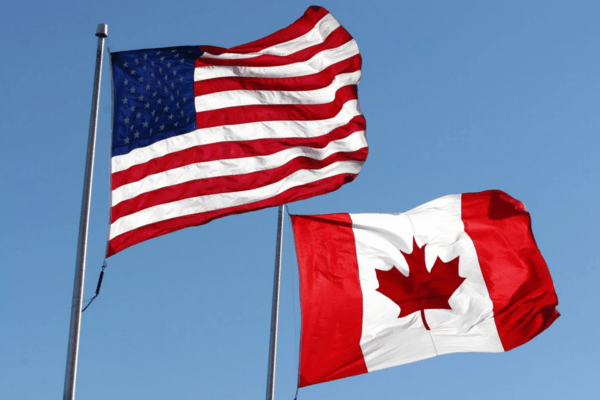The relationship between Canada and the United States has long been a cornerstone of North American
geopolitics, but the dynamics are shifting as the U.S. becomes increasingly inward-looking due to
rising nationalism and protectionism. This evolving landscape presents unique challenges for Canada,
emphasizing the need for a clear strategy to maintain relevance and strengthen its position on the world
stage.
Canada’s economic dependence on the U.S. is profound, with the American market accounting for 78
percent of Canadian exports and a quarter of its GDP. The potential for U.S. isolationism, illustrated by
former President Donald Trump’s threats to impose tariffs or withdraw from trade agreements like the
Canada-United States-Mexico Agreement (CUSMA), could significantly impact Canada’s economy.
Moreover, Canada’s defense spending lags behind other NATO countries, raising concerns about its
commitment to international security.
Despite these challenges, Canada possesses valuable assets, including critical minerals, oil, natural gas,
uranium, clean electricity, food, and advanced research in AI and quantum technologies. These
resources align with the needs of nations seeking to reduce their dependence on geopolitical adversaries
like Russia and China. However, Canada’s approach to utilizing these assets has been inconsistent, with
a lack of a cohesive strategy.
To address these issues, Canada must adopt a three-pillar approach focusing on deepening, broadening,
and accelerating its relationships and capabilities. The deepening pillar involves identifying bilateral opportunities that benefit both Canada and the U.S., such as critical minerals and Arctic security. The
broadening pillar emphasizes helping shared allies in the “friend-shoring” club, thereby increasing
Canada’s importance in the world beyond the United States.
An example of Canada’s success in leveraging its assets is its role in providing uranium to Ukraine after
Russia’s invasion. This critical supply chain, managed by the Saskatoon-based uranium producer
Cameco, has supported Ukraine’s energy needs while reducing dependence on Russian sources. This
successful collaboration highlights the benefits of broadening and accelerating Canadian resources. Additionally, the Arctic region presents new security challenges due to climate change, and
Canada must take swift action to address these. By investing in dual-use infrastructure, satellite
technology, and underwater surveillance, Canada can meet its defense needs while contributing to
broader North American security.
Canada must also consider its role in addressing migration issues at the U.S.-Mexico border, acknowledging that it is part of North America and should support efforts to stabilize regions that drive
migration. This approach aligns with the broader strategy of deepening and broadening relationships
within North America. As the U.S. has an election nearby, Canada’s relationship with its southern neighbor will depend on the political climate. Whether it is a continuation of the current administration or a return to Trump-era policies, Canada must focus on creating a “Matter More” strategy that ensures its continued relevance and strengthens its ties with the U.S. This strategy requires bold actions, a clear vision, and a
commitment to building a foreign policy consensus at home.
To achieve this, Canada needs to prioritize a more coordinated approach to its defense, economic, and
diplomatic policies. By embracing a “Matter More” mindset, Canada can navigate the evolving
geopolitical landscape and ensure that it remains a valuable and indispensable ally to the United States.
Make Canada great again.



